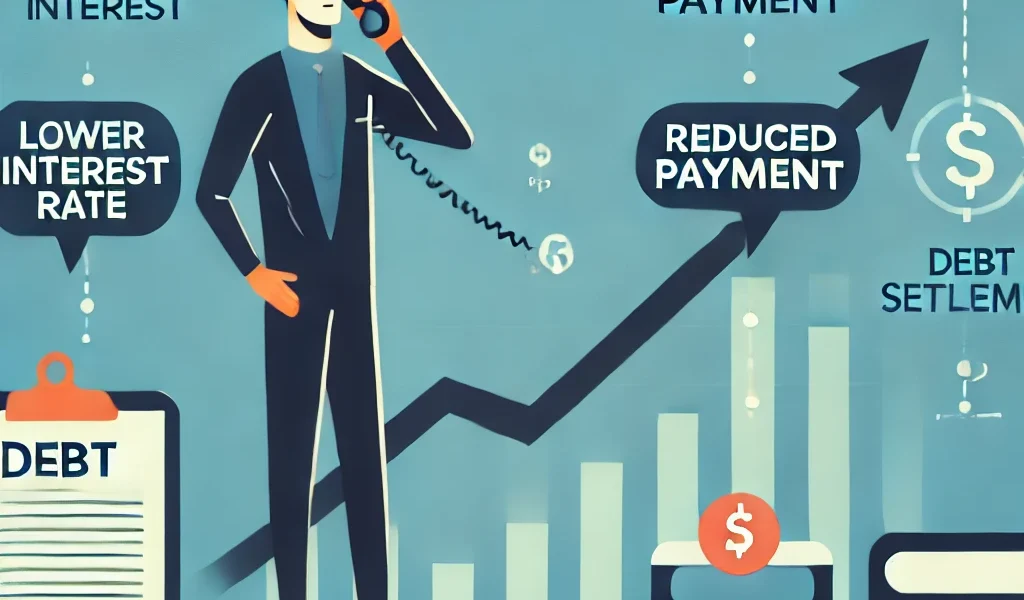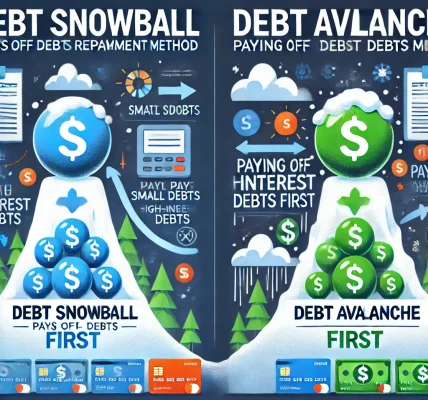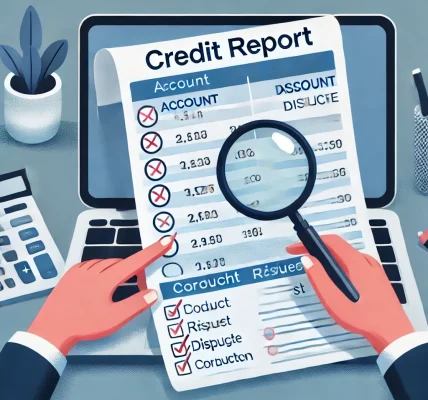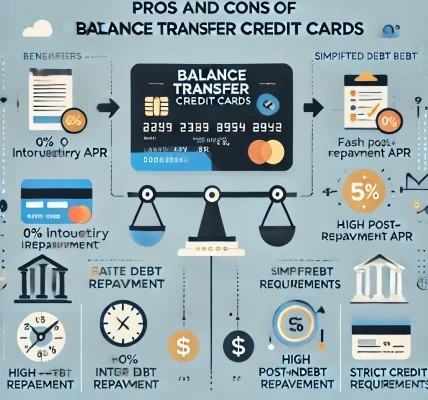Dealing with debt can be overwhelming, but you don’t have to face it alone. Many creditors are willing to negotiate and work with you to reduce your payments, lower interest rates, or even settle your debt for less than you owe. By taking the right approach, you can regain control of your finances and avoid severe consequences such as default or bankruptcy.
In this DIY guide, we’ll walk you through the steps to negotiate debt with creditors, discuss the different debt relief options, and provide actionable tips to help you achieve a better financial future.
Understanding Debt Negotiation
Debt negotiation is the process of communicating with creditors to modify the terms of your outstanding debt. It can include:
- Lowering your interest rate
- Reducing the total amount owed (debt settlement)
- Extending the repayment period
- Waiving fees and penalties
- Converting unsecured debt into a secured loan
Creditors are often willing to negotiate because receiving partial payments is better than the risk of non-payment.
When Should You Negotiate with Creditors?
If you’re struggling with debt, consider negotiating when:
- You’ve missed multiple payments and are at risk of default.
- You’re experiencing financial hardship due to job loss, medical expenses, or other emergencies.
- You have a high credit card balance with a high-interest rate.
- Your debt-to-income ratio is too high.
- You’re considering bankruptcy (negotiation can be a better alternative).
Negotiating with creditors before your account goes into collections can prevent additional fees and damage to your credit score.
Step-by-Step Guide to Negotiating Debt with Creditors
Step 1: Assess Your Financial Situation
Before contacting creditors, understand your current financial position. Gather details about:
- Your total outstanding debt
- Monthly income and expenses
- The amount you can afford to pay
- Your credit score (creditors may check it during negotiation)
Knowing these numbers will help you propose realistic repayment terms.
Step 2: Understand Your Options
There are different ways to negotiate debt relief:
- Debt Settlement – Paying a lump sum that is less than the total amount owed.
- Lower Interest Rate – Asking for a reduced APR to decrease monthly payments.
- Extended Repayment Plan – Spreading payments over a longer period.
- Forbearance or Deferment – Temporarily pausing payments if you’re experiencing hardship.
Choose the best option based on your financial situation.
Step 3: Contact Your Creditors
Reach out to creditors through phone, email, or formal letters. Use these communication tips:
- Be polite and professional.
- Explain your financial hardship honestly.
- Clearly state your request (lower interest rate, settlement, payment plan, etc.).
- Offer a specific repayment proposal that is reasonable for both parties.
- Get any agreements in writing before making payments.
Step 4: Negotiate Smartly
- Start with a lower offer: If negotiating a settlement, offer less than what you’re willing to pay and negotiate up.
- Mention competitors: If you have better offers from other creditors, use them as leverage.
- Ask for fee waivers: Late fees and penalties can sometimes be removed.
- Request a written agreement: Never pay based on verbal agreements alone.
Step 5: Follow Through with Payments
Once an agreement is reached, make payments on time. Failure to comply may void the agreement and result in further financial difficulties.
Debt Negotiation Strategies for Specific Types of Debt
1. Credit Card Debt
- Ask for a hardship plan to lower interest rates.
- Request a settlement if you can make a lump-sum payment.
- Transfer your balance to a lower-interest credit card if possible.
2. Medical Debt
- Request an interest-free payment plan.
- Ask about hospital financial assistance programs.
- Negotiate a lower bill for immediate payment.
3. Student Loans
- Contact your loan servicer for deferment or income-driven repayment plans.
- Consider refinancing if you qualify for a lower rate.
- Inquire about loan forgiveness programs.
4. Personal Loans
- Request a lower interest rate or an extended repayment period.
- Consolidate multiple personal loans into a single lower-interest loan.
5. Auto Loans
- Request a loan modification to reduce monthly payments.
- Refinance the loan to lower the interest rate.
- Sell the car and pay off the loan if payments are unmanageable.
Alternatives to Negotiating with Creditors
If direct negotiation doesn’t work, consider these options:
Debt Consolidation
- Combine multiple debts into one lower-interest loan.
- Helps simplify payments and reduce overall interest costs.
Credit Counseling
- A credit counseling agency can help negotiate better terms on your behalf.
- They offer structured debt management plans to help you stay on track.
Debt Management Plans (DMPs)
- A structured plan where you make one monthly payment to a credit counseling agency, which then distributes it to creditors.
- May include lower interest rates and waived fees.
Bankruptcy (Last Resort)
- If debts are unmanageable, bankruptcy may be an option.
- Chapter 7 eliminates certain debts, while Chapter 13 reorganizes them.
- Bankruptcy severely impacts credit but provides a fresh start.
Protecting Yourself During Debt Negotiations
✅ Avoid Scams – Work directly with creditors or reputable credit counseling agencies. ✅ Get Everything in Writing – Don’t rely on verbal agreements. ✅ Check Your Credit Report – Ensure creditors report settlements correctly. ✅ Be Wary of Fees – Some debt relief companies charge high fees for services you can do yourself. ✅ Know Your Rights – Debt collectors must follow the Fair Debt Collection Practices Act (FDCPA), which protects consumers from abusive collection practices.
Conclusion
Negotiating debt with creditors can be a powerful way to regain financial stability. By assessing your situation, understanding your options, and approaching creditors with a clear plan, you can reduce your payments and work toward a debt-free future.




